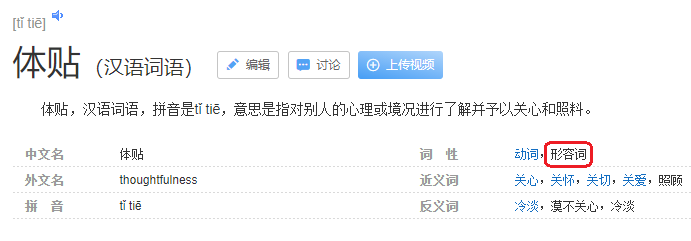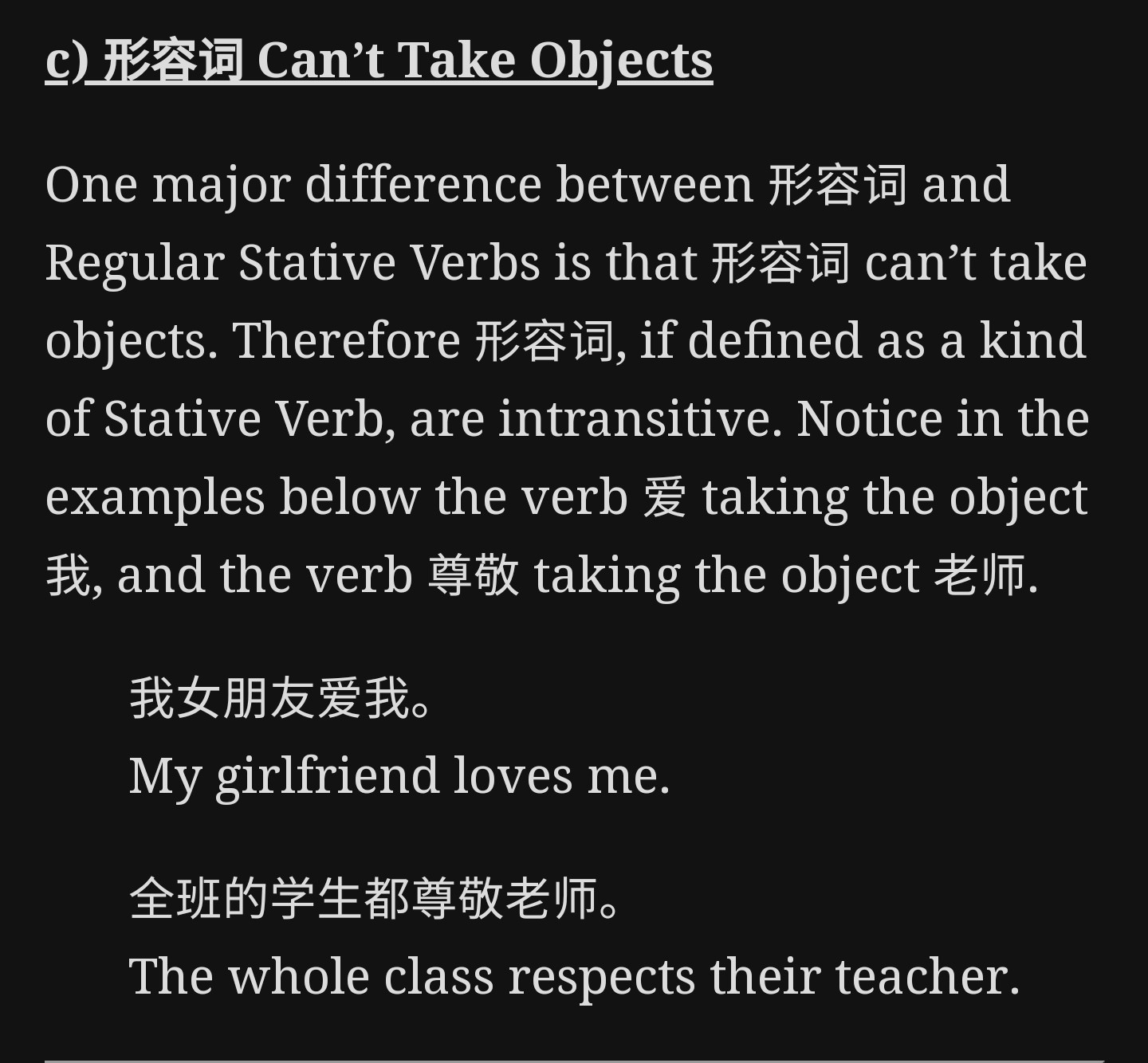For example: 我对父母很体贴(✓) 我很体贴我的父母(x) 我很关心我的父母(✓) (The example is given by my teacher but i don't know the reason) Hope you understand my question 🥺
1 Answer
体贴 (to be considerate) is intransitive, it cannot take a direct object. So you can be "considerate towards your parents" but you cannot "considerate your parents". In a similar vein, you can be "happy for someone" but you cannot "happy someone".
关心 (to be concerned about), on the other hand, is transitive. It can take a direct object.
Whether 体贴 can be considered intransitive appears to be a matter of debate. I'll start by saying that in Mandarin adjectives cannot take objects. This is made explicitly clear on the Chinese grammar wiki, hopefully I wont be forced to find additional sources to back this claim. It follows, then, that any instance of an adjectival verb is intransitive.
All that remains to be seen is whether 体贴 is an adjective or not. It is.
A sentence in the form 我很体贴 where 我 is the subject and 很体贴 is the predicate/verb phrase cannot have a direct object. joehua has linked to several examples of the contrary, sentences where 体贴 has been shown to take a direct object. Why this is, I don't know. Either the term is being misused or it has taken on a different meaning in those sentences. Take for example this page that joehua linked. It has the example sentence "他从小就知道体贴父母" which at face value invalidates everything I've just said. But if you type that exact sentence into Baidu's translator it will output "He has been considerate of his parents since he was a child", taking that English sentence and plugging it back into the translator will give the output "他从小就对父母很体贴". Evidently one is more correct than the other.
-
1《初刻拍案驚奇》卷一三:「那趙聰也到會體貼他夫妻兩人的意思,常只是詐病佯疾,不進學堂。」《紅樓夢》第五一回:「你們固然不敢抱怨,未免想著我只顧疼這些小孫子孫女兒們,就不體貼你們這當家人了。」I believe in the two examples above, 體貼 is transitive– joehuaCommented Sep 30, 2020 at 20:05
-
1
-
1
-
1I find it extremely strange that you took a Chinese sentence, translated it into English, then, from English back to Chinese, and claimed the translated Chinese sentence is better than the original. I wonder who would buy that? Certainly not me. And you think體貼in 體貼父母is an adjective, not a verb? I have always thought it a verb.– joehuaCommented Oct 2, 2020 at 11:58
-
1If 體貼 is an adjective and intransitive, what is the function of 父母 in 體貼父母?– joehuaCommented Oct 4, 2020 at 3:09


